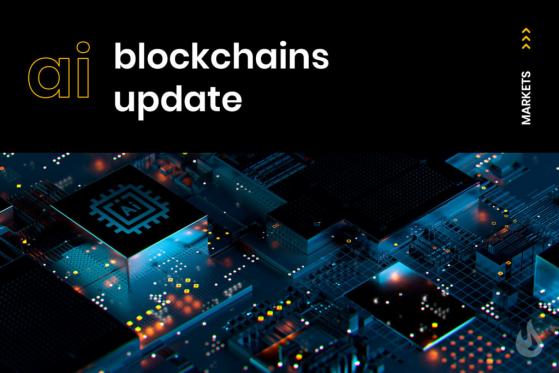The combination of blockchain technology and AI is one of the hottest emerging digital trends of the 21st century as they provide data reliability and faster processing speeds when used together. As more companies recognize the affordability of the new technologies, the value of the global blockchain AI market is set to increase from $220.5 million in 2020 to $973.6 million in 2027.
There is a rise in the adoption by small to medium-sized enterprises of developed blockchain AI applications. Blockchain DApps enable payment automation through cryptocurrencies, making them more reliable by removing the need for approval by a central authority. AI complements blockchain as it uses machine learning to process data and make decisions similar to humans. Both AI and blockchain are in the current position of helping and complementing each other as developments in the two fields are advancing.
The Emergence Of Decentralized AI
The digital revolution that started in the new millennium transformed what people knew about valuable resources. Data is one of the resources companies such as Google (NASDAQ:GOOGL), Amazon (NASDAQ:AMZN), or Facebook (NASDAQ:FB) have used to provide a user experience that can be highly monetized. Similarly, Satoshi Nakamoto’s release of Bitcoin in 2008, as the first decentralized digital payment currency, has paved the way to a new digital revolution where privacy, security, and information are equivalent to the gold standard.
Blockchain has evolved into much more than a payment system. It detached itself from purely financial applications, creating a decentralized system for data storage, digital identities, unique digital assets, such as virtual land, and supply chain management. Projects such as VeChain, Enjin, or Filecoin have all integrated blockchain technology to disrupt existing centralized processes.
Furthermore, the advantages that blockchain and AI bring to the table have prompted new ecosystems to be developed and used in the smart economy, where the IoT and smart cities represent the future. The technology underpinning such sustainable ecosystems is still growing, however, and it can bring both challenges and opportunities.
Microsoft (NASDAQ:MSFT) announced in 2019 that it would utilize blockchain technology to make machine learning more efficient, and although the underlying conceptions of both technologies are different, they somehow work together. An MIT presentation by the CEO of Chainhaus outlined a concept of autonomous AI trading agents helping the company create new financial products.
Even the IMF’s Christine Lagarde indicated that both AI and blockchain could shape an economic future “that works for all,” reiterating how data transparency and integrity can be beneficial. Integrating AI into the blockchain can benefit both, as it can increase processing speeds on the blockchain, which is one of the main issues of the technology. Advancements in development will soon increase transaction speeds and provide better opportunities for AI to be integrated into blockchain.
On the Flipside
- Data authenticity is not guaranteed, and it can lead the AI to risky, and even dangerous, decisions if data integrity is not verified.
- Companies that have a centralized governance and verification model or flawed consensus cannot leverage AI fully.
- The lack of interoperability between blockchains will limit AI’s opportunities to be immersed in the IoT.
The Future Of Blockchain AI
Combining blockchain and AI is no longer an abstract concept, and the excitement surrounding it has already made the market aware of possible use cases. Most recently, Fetch.ai has raised an additional $5 million to develop an infrastructure powered by AI where the software will perform work on behalf of individuals.
Releasing AI into the world in its current format can be damaging for the entire system. Blockchain offers the required security against harmful agents that could take control of the AI. Even Elon Musk advised caution regarding AI; however, he never took into consideration distributed ledger technology. As we’re rapidly shifting toward Web 3.0, where machines will communicate with each other and the IoT will produce a new digital reality, such developments require data to be distributed evenly and safely through the network, and blockchain can achieve this.
The combination of blockchain and AI can impact and improve almost any industry that integrates it. It can highlight lackluster systems in the medical, logistical, financial, and even personal fields while providing alternatives to make processes much faster and more efficient. While recording data on the public or private ledger is an advantage of blockchain, it can offer better insights into how AI operates and takes decisions, making them easier to audit knowing that data has not been manipulated.
The development of AI in conjunction with blockchain has shifted the approach projects are taking to improving their networks. Hedera Hashgraph and Cardano are already implementing DAGs into their blockchain system, creating a non-linear blockchain and using gossip protocols to validate transactions. This is just one way blockchains aim to enable faster AI integration, as it solves bottleneck issues and speeds up processing times. AI integration opportunities are endless, and more projects, such as Matrix AI or DeepBrain Chain, are making AI work on their networks.
